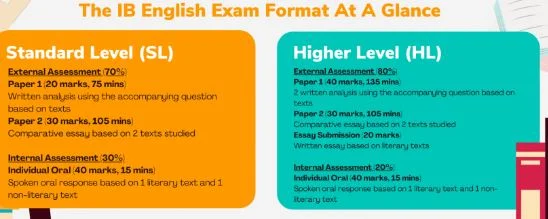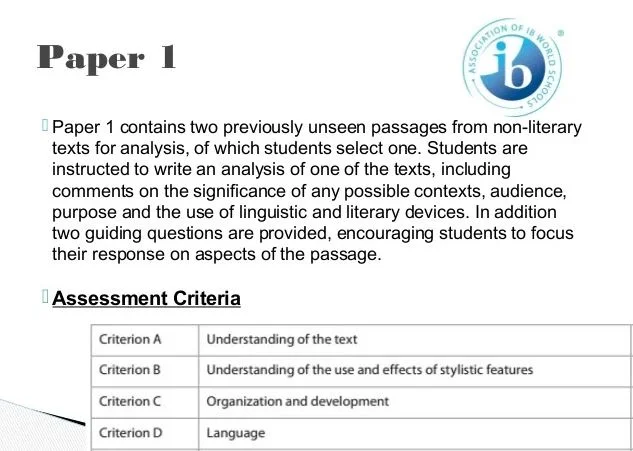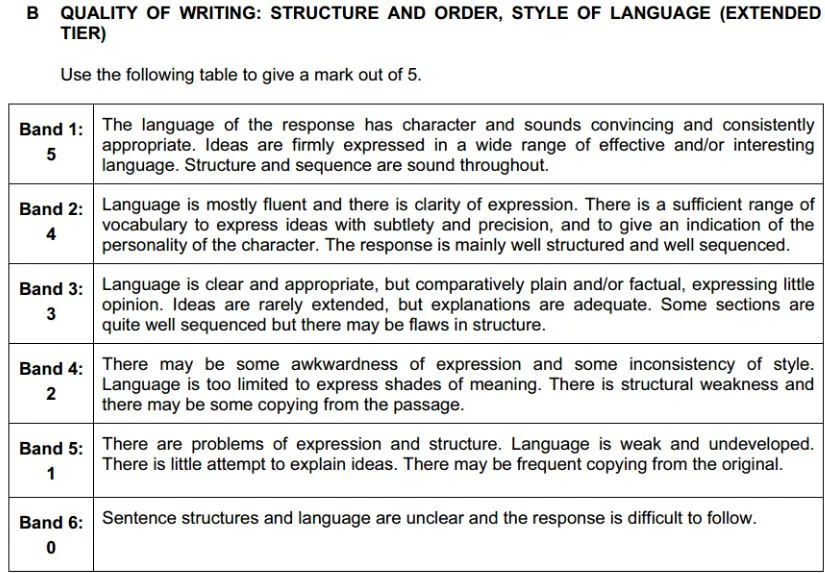IB English Written Assignment: Examples and How to Pass It

The ultimate question while dealing with the English assignment is how to write a brilliant and acceptable English essay. All you need to do is follow some elementary steps to help you get a positive score on the English written test.
One of the most common reasons students fail in IB English is their lack of concise, organized and clear writing. It’s not always easy to learn how to write effectively in high school, but you will find helpful examples and tips below.
What Does the IB English Assignment Entail?
The IB English syllabus is flexible and adaptable to the needs of the teachers and students. It provides a wide range of assessment tasks that will allow students to demonstrate their understanding of English literature and writing.

Students are expected to develop their own ideas by using evidence from various sources (both primary and secondary) to solve problems relevant to the topic, topic or text selected for the study.
The IB English curriculum develops the ability to read, write and speak fluently, accurately and clearly in English.
Students must demonstrate their language understanding through written work, speaking and listening activities. They will also be required to demonstrate their language understanding through independent research projects.
Students will develop a range of skills across subject areas, including:
- Written communication: understanding how to use language effectively; effective writing strategies;
- Reading comprehension: identifying the main ideas in texts; understanding how texts are structured; developing an awareness of different genres (including fiction and non-fiction);
- Speaking and listening skills: building up confidence in public speaking situations; using spoken language for academic purposes (including presenting ideas or information);
Critical thinking skills:
- Analyzing texts and information critically
- Evaluating data from different sources
- Developing knowledge about methods used by researchers in particular disciplines
How to Write an IB English Assignment
An IB English assignment is a piece of writing that demonstrates your ability to write with clarity, precision and style.

The assignment will be judged on how well you demonstrate your knowledge of the topic and how well you demonstrate your ability to communicate ideas in an accessible manner.
IB English Assignments are written in a very similar way as other assignments, but there are some things to keep in mind:
1. Well-structured Essay
The introduction should not be too simple, and it should contain all the information that is relevant to the topic.
Also, it should be coherent and logical. If you are writing an essay on a personal experience or something that happened to you, try to make sure that your essay is not too biased and does not talk about anything other than what happened in your life.
If you are writing about a scientific or historical event, remember that there are different formats for different types of essays.
For example, if you want to write about the life of Charles Darwin or Winston Churchill’s speeches, there will be some additional information that can help you with your research and writing process.
2. Include Relevant Research Evidence and sources
You should include references for all information you use in your essay; this will help readers understand where the information comes from, how reliable it is and whether you need more information to understand it fully.
You should also refer to other people’s opinions or arguments when they are relevant to the discussion. Look up articles from reputable magazines or newspapers and highlight any passages that interest you.
Try not to plagiarize or use quotes out of context; remember that plagiarism is against school rules!
IB English HL Essay Example Topics
The following are some of the topics that you can take up for your IB English HL Essay:
1. Themes, motives, and conflicts in a novel, short story, or drama
2. Characterization in a novel, short story, or drama
3. Point of view in a novel, short story, or drama
4. Use of imagination and symbolism in a novel, short story, or drama
5. Use of foreshadowing in a novel, short story, or drama
6. The use of the internet in our day-to-day life
7. How ICT is changing the way we communicate with people around the world
8. The impact of technology on job opportunities and education
9. How technology has changed the face of business
10. How social media can be used as a tool for good and bad
11. How new technologies such as virtual and augmented reality are changing our lives 12. The role of ICT in modern society 8.The impact of technology on the economy
13. The benefits and drawbacks of technology
14. The effect of technology on employment
15. What are the factors that influence the development of ICT?
16. How do we ensure that ICT doesn’t become obsolete?
17. The Role of the Internet in Science
18. The Importance of Writing in Making a Difference
19. Why We Need to Make Some Changes in Our Education System
20. Why We Must Learn How to Listen to Others
How to Structure your IB English Assignment
The word count
Word count is the most important component of your IB English assignment. The word count should be at least 1,500 words and include a title page and reference list.

Whether you have to write an essay or a report does not matter. The word count will be the same for both types of assignments.
Your first task is to decide how many words you will need for each section of your IB English assignment. You need to consider the length of each section and divide that by the number of sections you have decided on.
The structure
The structure of an IB English assignment varies depending on the type of question asked in the exam, but there are some general guidelines that you must follow:
1. Introduce the topic or issue you wish to discuss in the first sentence of your introduction paragraph. You may also include a brief definition of the term you are using.
For example, if you are writing about “the psychological impact of being part of a minority group,” you could start with: “The psychological impact of being part of a minority group is an important issue in today’s society.”
The first part is always a preamble, which states what you will write about and why it is interesting or important. If it’s something really interesting, then there will be no problem with this section; if not, try to find something that interests you and write about that instead!
2. In the second paragraph, state what you will be discussing in more detail and explain why it is important for students to understand this information before they begin their studies. The second part is usually where you present your ideas in detail.
You can do this in any way you want e.g., through an essay, a presentation or even a poem, but remember that it must be factual and clear so that your readers understand what you’re trying to say.
3. In the third paragraph, provide an overview of what has been discussed and how it relates to your research topic or issue. This section should be at least two sentences long (not including introductory and concluding paragraphs).
The third part is where you explain why something is interesting and how it relates to other things in the world today or in history or both.
4. In the fourth paragraph, provide details about how you will demonstrate your points through examples and evidence-based arguments that support your claims if applicable. This paragraph should be three sentences long not including introductory and concluding paragraphs.
5. Finally, conclude by summarizing what has been discussed so far.

With over 10 years in academia and academic assistance, Alicia Smart is the epitome of excellence in the writing industry. She is our chief editor and in charge of the writing department at Grade Bees.




